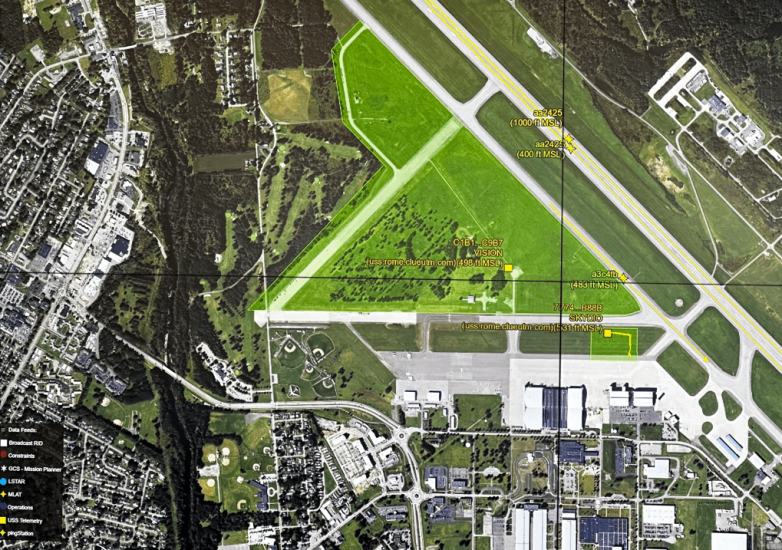Demonstrating the future of airspace management for uncrewed aerial systems (UAS) to securely operate anywhere in the world, the United States Defense Innovation Unit (DIU) recently conducted flight operations while enabling critical data sharing via a multi-network device.
The evaluation event was held in partnership with the Office of the Under Secretary of Defense for Acquisition & Sustainment, US Air Force Research Lab, AgEagle, Auterion GS, AX Enterprize, Skydio, and Somewear Labs at the Federal Aviation Administration-designated NY UAS test site. It evaluated the integration of select Blue UAS platforms with the Collaborative Low-Altitude UAS Integration Effort (CLUE) Uncrewed Traffic Management (UTM) system. This system, developed by AFRL, provides a way to enable the safe, secure, and efficient operations of UAS within the national airspace system. The Blue UAS effort, started in 2020, is an approach that rapidly vets and scales commercial UAS technology for the Department of Defense.
“As the usage of small UAS aiding warfighting functions continues to expand, it is becoming increasingly important to confidently distinguish between those UAS trusted to be used for DoD missions and those that just happen to be in our airspace,” said David Michelson, Autonomy Portfolio Director at DIU.
Demonstration partners and products included AgEagle’s eBee VISION and Skydio’s X2D flying missions while supplying telemetry data back to the CLUE UTM system over a Somewear Node multi-network device. The aircraft were controlled by UXV Technologies’ Soldier Robotic Controller ground control stations (GCS), a handheld device designed to operate and control UAS, and the QGC-Gov software solution. DIU said the configuration combined the efficiency of mesh radios and the resilience of satellite technology, while securely providing real time information to the mission command centre.
Each GCS was connected via USB to a Somewear Node, with an additional range extending relay node carried by a Freefly Systems Astro UAS, all forming a mesh to a cellular device and back to the enterprise network for parsing and ingestion to the CLUE UTM software.
By combining the telemetry data provided by the UAS with other data feeds, such as automatic dependent surveillance–broadcast (ADS-B), counter-UAS sensors, and nearby radars, the CLUE system provided a visual situational awareness tool that can assist with air traffic deconfliction, flight area allocation, Federal Aviation Administration compliance, and identification of other UAS.
DIU said the effort demonstrated a successful option for regular flight operations to be conducted with an uncrewed traffic management system that securely provides necessary information from anywhere in the world.
For more information
Image: Defense Innovation Unit




